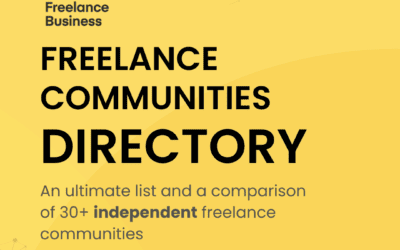Your team has a problem to solve and needs assistance. The issue might not be big enough to warrant looking for a full-time employee, but neither is it small enough to put it on the shoulders of your existing team. The solution? Hire a freelancer.
It may sound simple – after all, they aren’t a full-time employee, right? But there are many things you need to consider when taking that step. We cover the most important one below.
1. Familiarise yourselves with external workers
Never worked with freelancers before? Then it is a good idea to educate yourselves on the topic before hiring someone. Independent workers have many differences compared with traditional employees and require an adapted approach. Talk to your team, your HR department (or even your procurement department) and your managers to learn if they are ready to work with a freelancer and know how to make the maximum of the relationship.
2. Contracts and admin
All businesses take administration, legality and taxation extremely seriously. We’re sure you know the amount of documents you need to provide and sign when joining a company.
Hiring external workers can (and should) be a more simplified process, but that doesn’t mean businesses are free to cut corners. Make sure to provide the freelancer with a strong contract and other necessary documents, and be ready to connect them with the HR team (or Procurement) if they have any questions. While it is not mandatory, try to share with them as many benefits of working with your company as possible – be that reductions in the company restaurant or coffee shop, discount codes, insurance, and whatever else you are legally allowed to. The freelancer will feel like a valued member of the team.
3. Payment
Another area to consider is payment. Your business will most likely have a set payroll system, but is it flexible for freelancers? Always discuss. If you are working with a contractor from a different country, then you will need to take local compliance in account. You can learn more about the different pricing methods freelancers can use in our article. Worried that the freelancers you like will cost more than a traditional employee? Then you’d like to see our article on the topic that explains the total cost of having a freelancer in your team.
If you source freelancers via a platform, it may also provide the necessary background checks, payment and insurance solutions. Ask your platform provider.
4. Briefing, project scope and setting boundaries
Before you hire external help, know what you need and what you will expect from them! While employees can be tasked with extra responsibilities, freelancers usually only do what is in their brief or project scope. You don’t want to have an external worker who doesn’t know what they need to do, so make sure you provide a detailed brief before and after they start. Put as many arrangements as possible in the contract, so they are outlined for all parties.
Bear in mind, external workers may take some time to adjust to your company culture, just like a traditional employee, so always offer continuous support for them.
5. Onboarding and offboarding process
After the admin and finance parts are done, the freelancer can begin work. Don’t forget the social aspect of the onboarding process – introduce them to your team and explain who they will work with. Guide them through the operation side of the project and bring attention to KPIs and other points of interest.
Pro-tip: if you plan to use freelancers frequently in your team, you can set up a welcome pack with the most important info for them!
The offboarding process should follow similar rules: make sure all documents are signed for the end of their work arrangements and all the payments are finalised. Allow your in-house team to say goodbye to the person. Don’t forget to give feedback for the work done, as well as listen to their feedback too! Leaving reviews or LinkedIn recommendations will be much appreciated, as it helps the contractors attract new clients. Recommending their skills to others will also be greatly appreciated.
6. Respect
Never treat freelancers in your team like disposable help. While it is true that they can only hop on a project when they are needed, you shouldn’t downplay their contribution just because they won’t be a permanent part of your team. It’s worth remembering that every employee is only a temporary part of your team – in fact, gaming studios are notorious for laying off extra staff after they have finished publishing a big title. If a good freelancer receives a fair treatment, they can actually stay aboard longer than other employees.
7. Seek professional advice
If you care about providing the best possible experience to the freelancers you hire, then the best step is to get in touch with the experts, who can assist you in managing the hiring process. Companies like Charipickers have years of experience in the integration of the contingent workforce in structured teams and can assist you in the process. Get in touch with them here.




